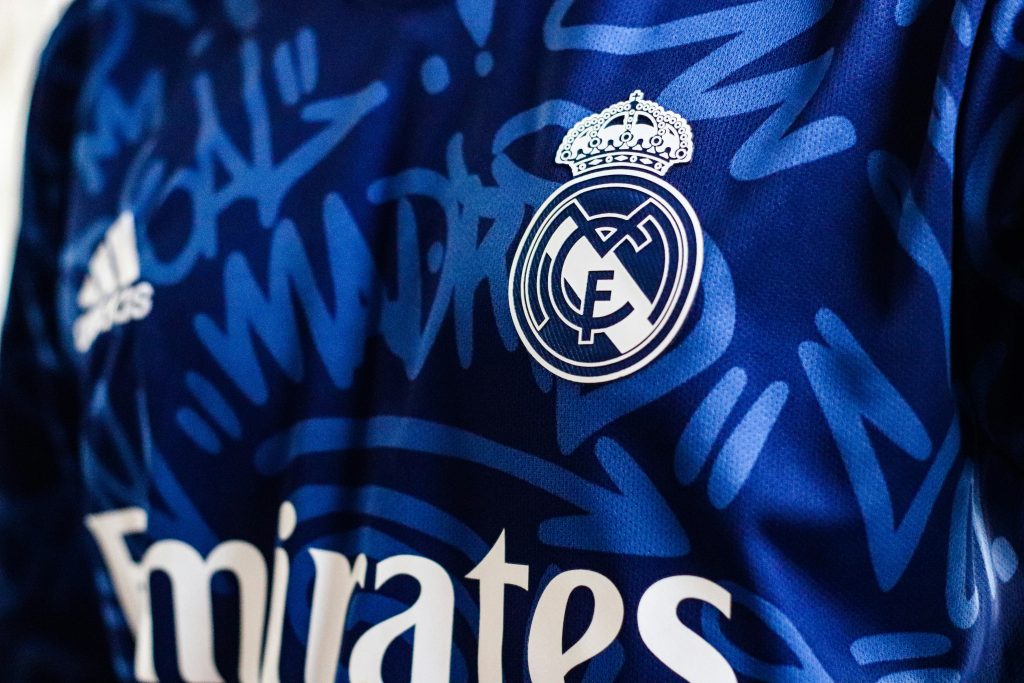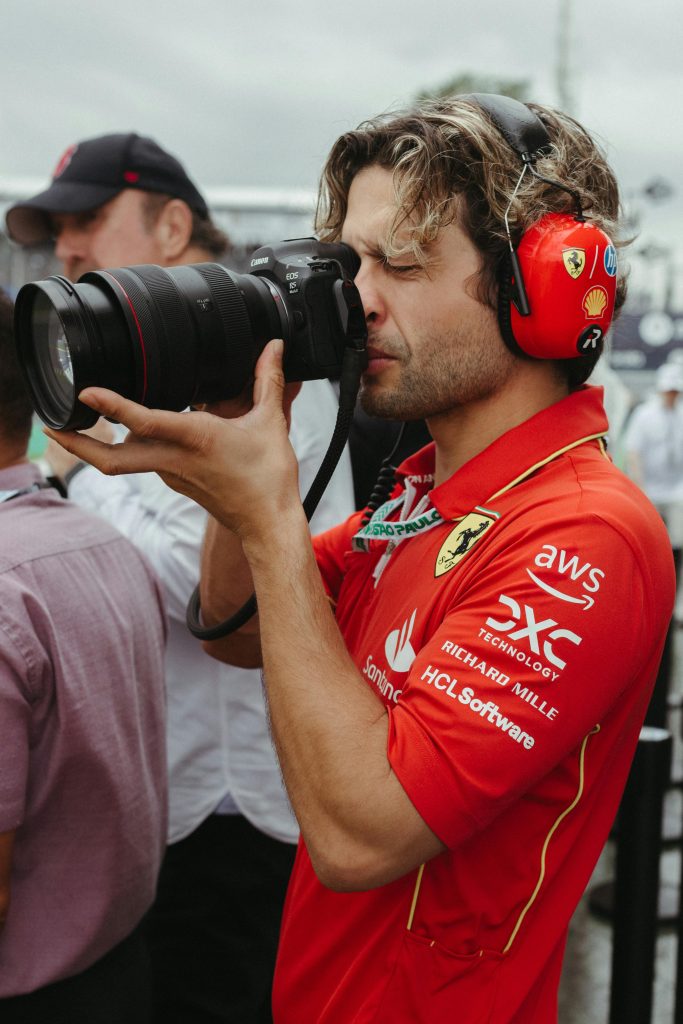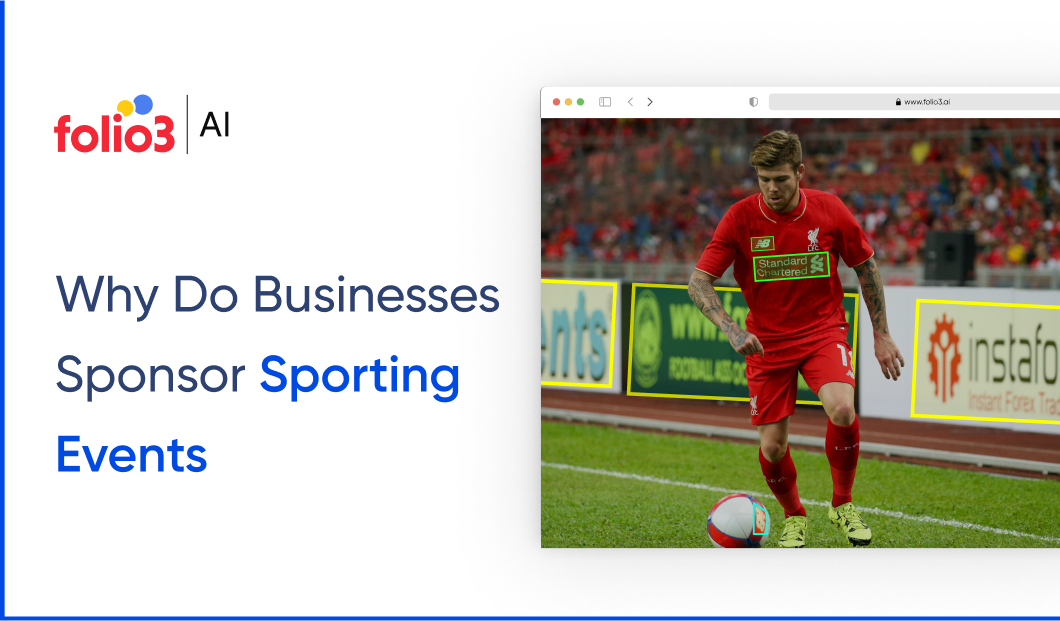Sports bring together millions of passionate fans across the globe, all united in their love for the game and their favorite athletes. This powerful reach and emotional engagement make sporting events a prime opportunity for businesses. That’s why companies invest heavily in sponsorships—they’re not just gaining visibility, they’re building brand loyalty in front of a captivated audience.
But how do companies benefit from sponsorships? While businesses enjoy lucrative brand awareness and customer engagement, sports organizations receive the financial support they need to grow, innovate, and host world-class events. Sponsoring sporting events even helps align their brand with desirable attributes and offers measurable returns on investment (ROI).
Here’s a breakdown of why businesses sponsor sporting events.
- Visibility: Sponsoring sporting events offers supreme exposure to a vast and diverse audience, from spectators at the venue to millions watching through broadcasts and digital platforms. This broad reach helps increase brand awareness and recognition.
- Brand Alignment: Businesses strategically partner with sports that resonate with their target demographic and brand values. For instance, a health-conscious brand might sponsor a marathon, associating itself with fitness and well-being. This alignment helps shape positive perceptions of the brand and easily influences consumer loyalty.
- Measurable ROI: While sometimes challenging, businesses employ various metrics to assess the effectiveness of their sponsorship ROI. This includes tracking media mentions, social media engagement, website traffic, sales increases, and shifts in consumer perception, all of which contribute to demonstrating a tangible return on investment.
Read this blog to learn more about the other key benefits of sponsorship in sports that prompt businesses to invest significant amounts of money.

Key Benefits for Businesses
Sports sponsorships offer businesses a powerful and multifaceted avenue to achieve various strategic objectives, extending far beyond simple advertising. By aligning with the passion and global reach of sports, companies can build strong brand equity, drive sales, and foster deep customer relationships. This strategic approach is a foundation of modern sports business intelligence, demonstrating how brands get detailed market insights to maximize their return on investment in the sporting world.
Here are the key benefits for businesses investing in sports sponsorships:
1. Brand Visibility & Awareness
Sports sponsorship is in a league of its own. It creates a business persona that sticks in the audience’s brain for the long term.
- Reaching large, diverse, and engaged audiences: Sporting events, from local leagues to global spectacles like the FIFA World Cup or the Olympics, attract billions of viewers and attendees. This provides immense exposure for sponsoring brands. For instance, the FIFA Women’s World Cup Australia & New Zealand 2023™ saw over 1.7 million tickets sold, with a single match between China PR and England garnering 53.9 million viewers worldwide, significantly boosting the visibility of major sponsors like Adidas, Coca-Cola, and Visa. The Olympic Games, for example, typically draw over 3 billion spectators globally.
- Real-time exposure through TV, social media, and live attendance: Brand logos prominently displayed on jerseys, stadium signage, and advertising materials receive continuous exposure during live broadcasts, replays, and social media discussions. A jersey sponsor, for example, is almost always visible in content shared by rights holders on social media, multiplying online reach. This constant presence helps keep the brand top-of-mind for consumers.
2. Targeted Marketing & Audience Segmentation
You can easily target and access the specific audience. That helps businesses connect more effectively with specific demographics and niche markets than traditional advertising.
- Aligning with specific demographics (e.g., youth, regional fans): Brands can choose sponsorships that align with their ideal customer base. For example, a shoemaker aiming to sell basketball sneakers can sponsor basketball teams, knowing that a significant portion of fans are interested in the sport and its associated products. Similarly, an activewear brand might sponsor a women’s basketball team to engage with a predominantly female sports-loving audience.
- Leveraging niche sports for B2B outreach: Beyond consumer markets, sports sponsorships can facilitate valuable B2B connections. Events and professional infrastructure surrounding sports provide ideal platforms for forging new business relationships and strengthening existing ones, often through exclusive networking events and VIP access.
3. Brand Image & Emotional Association
Brands get a chance to tap into sports’ emotional resonance, inspiring positive image and deeper connection with consumers.
- Positive brand perception via association with values like teamwork, performance, and national pride: By associating with a sports team, athlete, or event, a company aligns itself with values like passion, teamwork, dedication, and excellence. This positive image transfer can significantly enhance brand credibility and public perception. Research indicates that consumers are more likely to view brands involved in sports sponsorship as more trustworthy and relevant. This is often referred to as “emotional uplift.”
- Building emotional loyalty among fans: Sports evoke strong emotions and fierce loyalty. When a brand consistently supports a team or athlete, fans often transfer their positive feelings and loyalty to the sponsor. This emotional commitment can lead to fans seeing the brand as almost part of the team, fostering long-term brand loyalty.
4. Customer Engagement & Loyalty Programs
Sponsorships provide unique opportunities for direct customer engagement and the development of loyalty-building initiatives.
- Activations at events (e.g., booths, games, contests): Sponsors can create interactive experiences at sporting events, such as branded booths, games, and contests, to directly engage with attendees. These “activations” are considered the heart of sports sponsorship, allowing brands to tell stories and connect with their target audience in a meaningful way.
- Exclusive offers and fan experiences: Sponsorships often grant access to exclusive fan experiences, “money-can’t-buy” opportunities, loyalty incentives, prize draws, and bonus programs. For instance, Coca-Cola’s sponsorship of the FIFA World Cup involves not just displaying a logo but also organizing events like the World Cup trophy tour, creating unique fan experiences that foster brand affinity.
5. Sales Enablement & ROI
Ultimately, sports sponsorships are a strategic investment to drive sales and generate a measurable return.
- Product trials and sampling opportunities: Events offer platforms for product trials and sampling, allowing potential customers to experience offerings firsthand.
- Influencing purchasing decisions: The increased brand awareness, positive image, and emotional connection fostered by sponsorships can directly influence consumer purchasing decisions. For example, Nike’s significant investment in sponsoring golfer Rory McIlroy translated into increased purchases of Nike products, demonstrating a direct link between sponsorship and sales. Studies suggest that brand strength, often built through visibility and positive association, contributes significantly to overall sales (60-80%). Brands that consistently invest in sports sponsorships have been shown to outperform market averages in some studies.
6. Long-term customer lifetime value growth
Beyond immediate sales, sports sponsorships cultivate enduring relationships that contribute to long-term customer value.
- Building sustained relationships: Unlike traditional advertising campaigns that may generate short-term attention, sports sponsorships forge relationships that grow and deepen over time, season after season. This consistent support reinforces the brand’s commitment to the sport and its fans.
- Fostering enduring loyalty: The deep emotional loyalty that fans have for their teams can extend to the sponsoring brands. When consumers see a brand consistently supporting their passion, they are more likely to develop long-term loyalty to that brand, leading to repeat purchases and higher customer lifetime value.
How to Make Sponsorship Effective
While you have the opportunity to connect your brand with a highly targeted audience, true marketing success depends on more than just visibility — it requires a well-thought-out strategy. It’s not about simply putting your brand name out there and following sports trends. It’s about building a meaningful connection. So, how can you make that happen? Let’s discuss it below.
1. Set Clear Goals
Know exactly what you want to achieve.
- Brand Goals: Increase awareness, improve public image, or build loyalty.
- Sales Goals: Drive more sales or generate new leads.
- Engagement Goals: Boost social media interaction or event participation.
2. Choose the Right Event or Athlete
Pick a partner that fits your brand and audience.
- Target Audience: Their fans should be your potential customers.
- Brand Values: Their image should match your company’s values.
- Authenticity: The partnership should feel natural and believable.
3. Integrate with Digital Campaigns
Amplify your sponsorship online.
- Digital Reach: Use social media, emails, and online ads to spread the word.
- Interactive Experiences: Create online contests or virtual fan zones.
- Drive Traffic: Send people to your website or online store.
4. Measure KPIs (Key Performance Indicators)
Track results to see what’s working.
- Visibility: Count how many times your brand was seen (impressions, reach).
- Sales/Leads: See how many new customers or leads came from the sponsorship.
- Engagement: Check social media interactions and website visits.

AI-Powered Insights: Proving Sports Sponsorship Value
Once a sponsorship deal is live, brands want to know if it’s actually working. That’s where AI in sports helps—by giving clear, data-backed answers.
1. Smarter Audience Insights
AI tools look at fan data from social media, ticketing, and apps to build detailed profiles. This helps brands run targeted campaigns and connect better with fans.
2. Real-Time Media Tracking
AI tracks brand logos and mentions across TV, livestreams, and social media. It shows how often your brand appears and calculates the actual value, making the AI sports sponsorship solution easier to measure.
3. Predicting What Works
By analysing past data and trends, AI helps brands pick the best sponsorships and predict future results. This makes planning more effective and reduces risk in AI sponsorship ad campaigns.
4. Better Fan Engagement
AI also powers chatbots, personalised offers, and smart pricing, turning fans into customers with more direct and measurable results.
Conclusion
Sponsoring sports isn’t just about getting your logo out there — it’s a smart business move. That’s the reason the companies spend a million dollars on sports sponsorship. It gives you the chance to tap into the passion of global fans, boost brand recognition, and open doors to market growth and B2B opportunities. But to really make it work, you need clear goals, the right partners, a strong digital presence, and the support of AI-powered tools. Done right, sports sponsorships can help you increase sales, build long-term customer loyalty, and drive real business growth.









